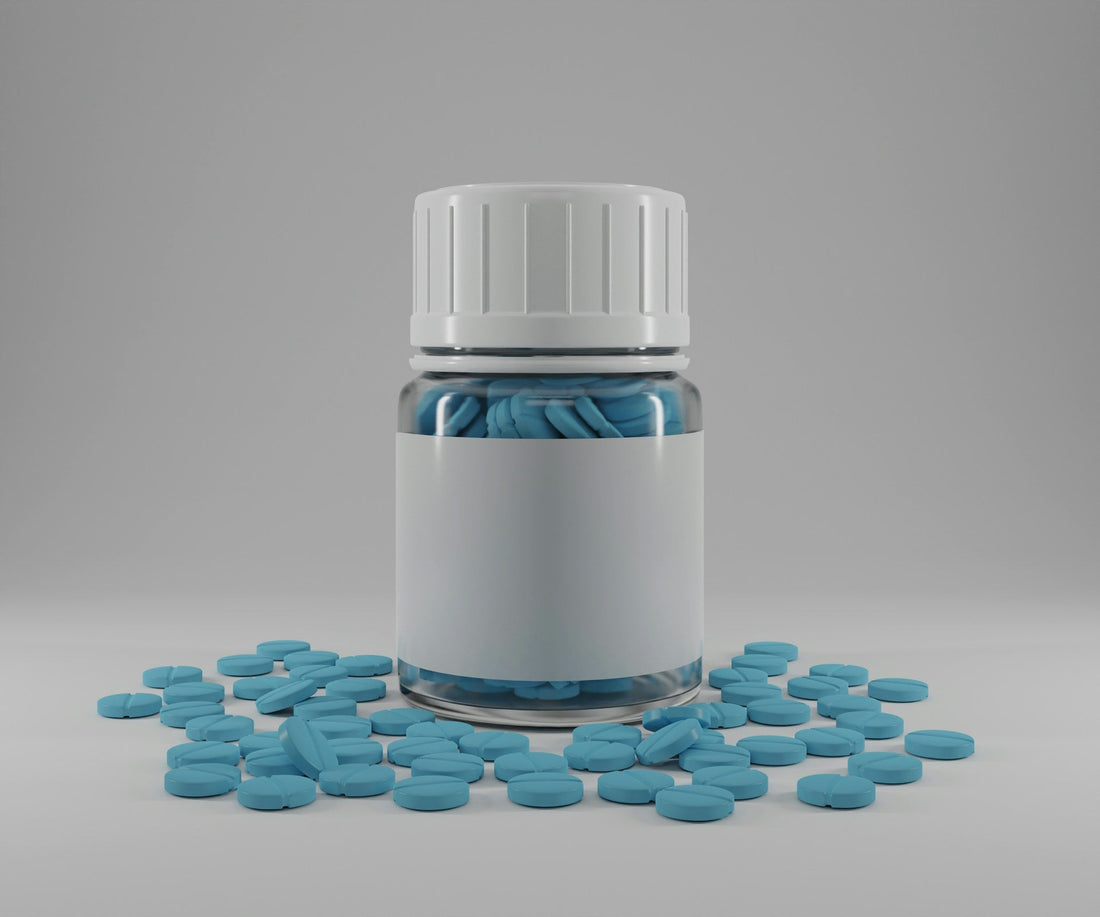
Would Hemorrhoids Cause Lower Back Pain? Understanding the Connection
Share
If you’ve been experiencing persistent lower back pain and are concerned about the possible causes, you might wonder whether hemorrhoids could be a contributing factor. While hemorrhoids themselves are not directly linked to causing back pain, the discomfort associated with them can indirectly affect your lower back. Understanding this connection can help you navigate your symptoms and seek appropriate relief.
Many people struggle with hemorrhoids, which are swollen veins in the anal canal or rectum. The pressure and discomfort from hemorrhoids can lead to changes in posture or movement, potentially resulting in tension in the lower back. If you're looking for effective relief from hemorrhoids, consider Hem Healer. Our 100% natural blend of botanical herbs is designed to reduce the pain, swelling, bleeding, and severity of hemorrhoids for both men and women.
Recognizing how your symptoms relate can be crucial for effective management. This article will explore the relationship between hemorrhoids and back pain more closely, providing you with information to better understand your health and discomfort.
Understanding Hemorrhoids
Hemorrhoids are swollen veins in the anal canal and rectum. They can occur internally or externally.
Types of hemorrhoids:
- Internal hemorrhoids: Located inside the rectum, often not visible or painful.
- External hemorrhoids: Found under the skin around the anus. They can cause significant discomfort and may bleed.
Common symptoms of hemorrhoids include:
- Pain or discomfort during bowel movements
- Prolapse, where internal hemorrhoids protrude outside the anus
- Itching or irritation in the anal region
- Bleeding, often noticed on toilet paper or in the toilet bowl
Sometimes, external hemorrhoids can form a blood clot, resulting in severe pain and swelling.
Managing hemorrhoids can be challenging. Products like Hem Healer can help alleviate symptoms. Hem Healer is a 100% natural blend of botanical herbs designed to reduce pain, swelling, and bleeding. This supplement is effective for both men and women.
Taking proactive measures is essential. Staying hydrated and consuming a high-fiber diet can minimize strain during bowel movements, potentially preventing worsening of hemorrhoids. If symptoms persist, seeking medical advice is recommended.
Could Hemorrhoids Cause Lower Back Pain?
Hemorrhoids are swollen veins in the anal area, but they are not typically linked to lower back pain. While you might experience discomfort in your lower back, it usually arises from other causes.
Common causes of back pain include:
- Musculoskeletal issues, such as herniated discs
- Poor posture during sitting or standing
- Prolonged periods of inactivity
Sitting for extended periods, particularly when constipated, can lead to tailbone pain. This discomfort can radiate to the lower back, but it’s important to note that hemorrhoids themselves do not directly cause this pain.
Maintaining good posture is crucial. Poor alignment can exacerbate back issues and contribute to general discomfort. If you're experiencing persistent lower back pain, it may be worth consulting a healthcare professional.
Addressing hemorrhoids can alleviate some related symptoms. Using a supplement like Hem Healer can help reduce pain and swelling associated with hemorrhoids. Hem Healer combines a 100% natural blend of botanical herbs that effectively alleviates issues in both men and women.
If you experience ongoing back pain that interferes with daily activities, seeking medical advice is important.
Lifestyle Factors and Self-Care
Managing hemorrhoids effectively involves addressing lifestyle factors that contribute to the condition. Dietary adjustments and increased physical activity play vital roles in alleviating symptoms and promoting overall comfort.
Dietary Adjustments
Incorporating high-fiber foods into your diet can significantly impact your digestive health. Aim for 25-30 grams of fiber daily by including fruits, vegetables, whole grains, and legumes. Foods like oats, beans, and berries are excellent sources. These help soften stool, reducing straining during bowel movements—a major contributor to hemorrhoids.
Consider fiber supplements if you struggle to meet fiber goals through food alone. Supplements can assist in easing constipation and preventing future flare-ups. Additionally, staying well-hydrated is crucial; drink plenty of water throughout the day to support digestion.
Remember, a diet low in processed foods and sugar can also help. Hem Healer offers a natural way to support your body, helping reduce pain and swelling associated with hemorrhoids.
Physical Activity Recommendations
Regular exercise is essential for maintaining healthy digestion and promoting overall vascular health. Aim for at least 150 minutes of moderate aerobic activity each week. Activities such as walking, swimming, or cycling can help maintain good circulation and prevent constipation.
Be cautious with prolonged sitting, as it can increase pressure on the rectal area. If your work involves long hours at a desk, take frequent breaks to stand and stretch. Incorporate exercises that strengthen your core and pelvic floor muscles, as these can support your bowel health.
Engaging in regular physical activity not only benefits your gastrointestinal tract but can also help manage hemorrhoid symptoms effectively. For additional support, consider using Hem Healer supplements, a natural blend of botanical herbs specifically designed to reduce hemorrhoid discomfort for both men and women.
Medical Treatments and Procedures
When dealing with hemorrhoids, understanding the medical treatments and procedures available can help you alleviate symptoms and improve your quality of life. Various options range from non-invasive treatments to more invasive surgical interventions depending on the severity of your condition.
Non-Invasive Treatments
You can manage mild to moderate hemorrhoid symptoms effectively with non-invasive treatments. Common methods include topical creams and ointments, which often contain soothing ingredients to reduce pain and inflammation.
Home remedies such as sitz baths, cold compresses, and dietary changes, like increasing fiber intake, are also helpful. Consider using Hem Healer, a 100% natural supplement formulated with botanical herbs. It targets pain, swelling, and bleeding, making it an excellent option for both men and women.
In addition, sclerotherapy involves injecting a chemical solution into the hemorrhoid tissue. This causes the blood vessels to shrink, alleviating symptoms without major complications. Rubber band ligation is another effective method; it involves placing a rubber band around the base of the hemorrhoid to cut off its blood supply, causing it to fall off.
Surgical Interventions
For severe cases of hemorrhoids, surgical interventions may be necessary. Hemorrhoidectomy is a common surgical procedure where the hemorrhoids are surgically removed. This procedure can provide long-term relief but may require a longer recovery.
You may also consider a minimally invasive procedure known as stapled hemorrhoidopexy, which repositions and staples the tissue of the hemorrhoid back to its original location. This method tends to result in less pain and quicker recovery compared to traditional surgery.
Before making a decision, it’s important to discuss these options with your healthcare provider. They can offer tailored recommendations based on the severity of your condition and your specific needs.
Identifying and Addressing Complications
Understanding complications related to hemorrhoids is crucial for proper management. Severe cases can indicate more serious underlying issues, while differentiating these conditions can lead to effective treatment.
Recognizing Severe Cases
When hemorrhoids become thrombosed, a blood clot forms within the external hemorrhoid, resulting in severe pain, swelling, and sometimes rectal bleeding. If you experience persistent pain or notice blood during bowel movements, seek medical attention promptly.
Symptoms indicating complications also include anal fissures, which can cause sharp pain and bleeding during bowel movements. In some cases, conditions such as ulcerative colitis or Crohn's disease may present similarly. If you notice painless bleeding or ongoing discomfort, it may signal a need for further evaluation for colorectal cancer. You should also consider using natural remedies like witch hazel for symptom relief, as it can reduce inflammation around the anal area.
Differentiating Related Conditions
Various conditions can mimic or coexist with hemorrhoids, making it essential to distinguish them accurately. Anal fissures often accompany hemorrhoids, causing sharp pain and rectal bleeding. If the pain is severe and localized, this may point to a fissure rather than hemorrhoids alone.
Other gastrointestinal issues, such as colitis or inflammatory bowel diseases, may also cause similar symptoms. If you experience ongoing rectal pain or bleeding, it’s vital to consult a healthcare provider.
In uncertain cases, a thorough examination will determine the root cause. Utilizing supplements like Hem Healer can aid in reducing hemorrhoid symptoms; its natural blend of botanical herbs helps alleviate pain, swelling, and bleeding effectively for both men and women.

